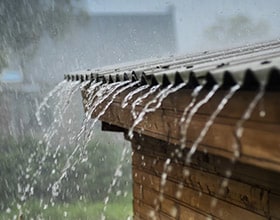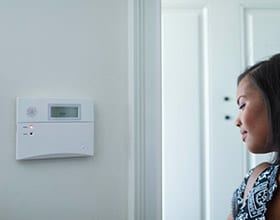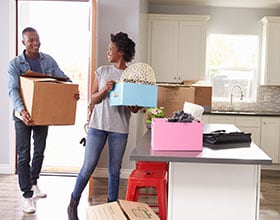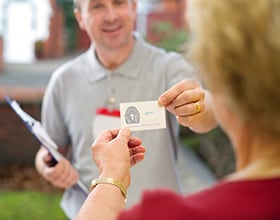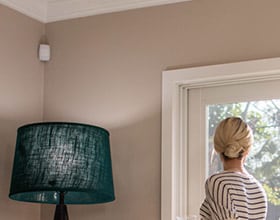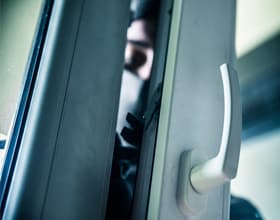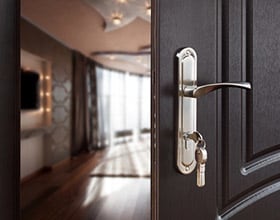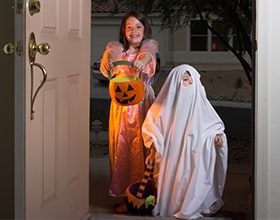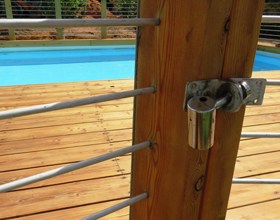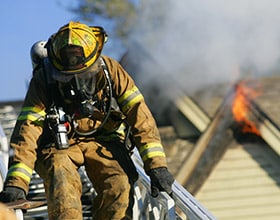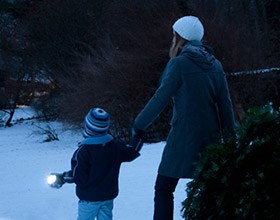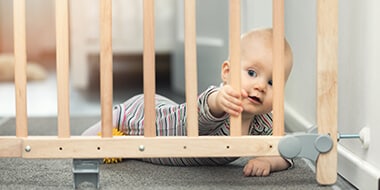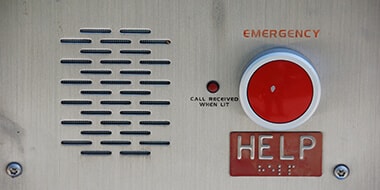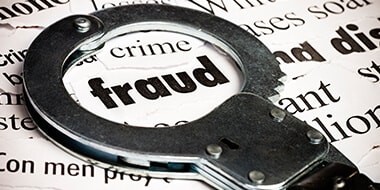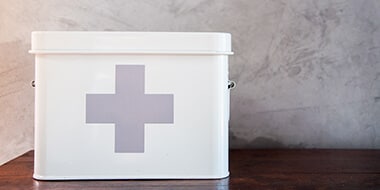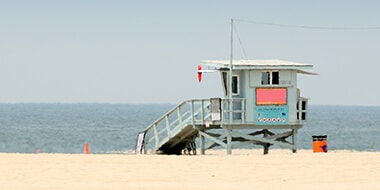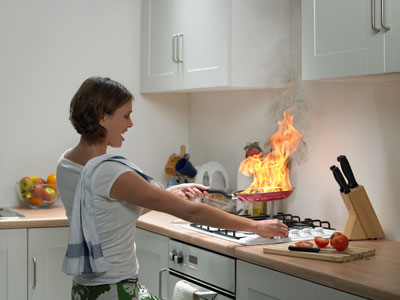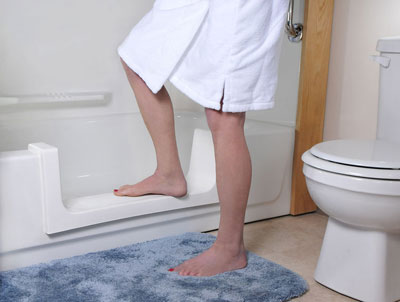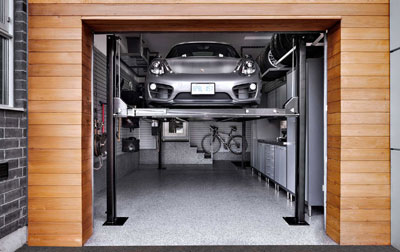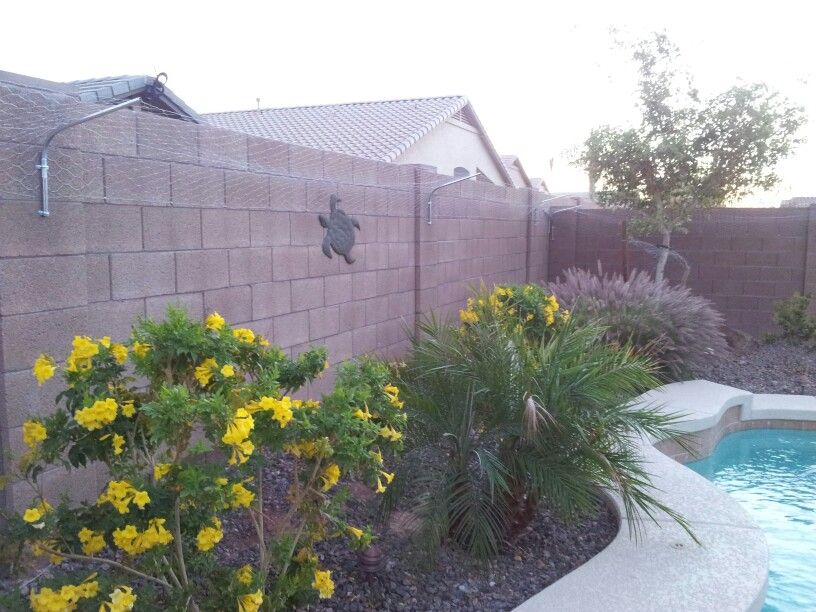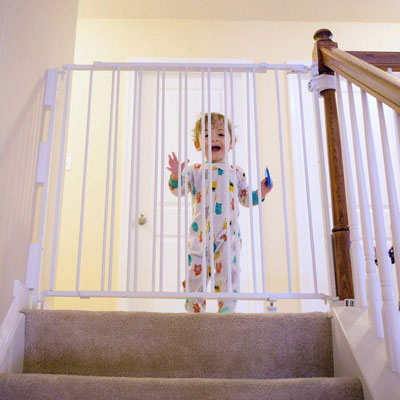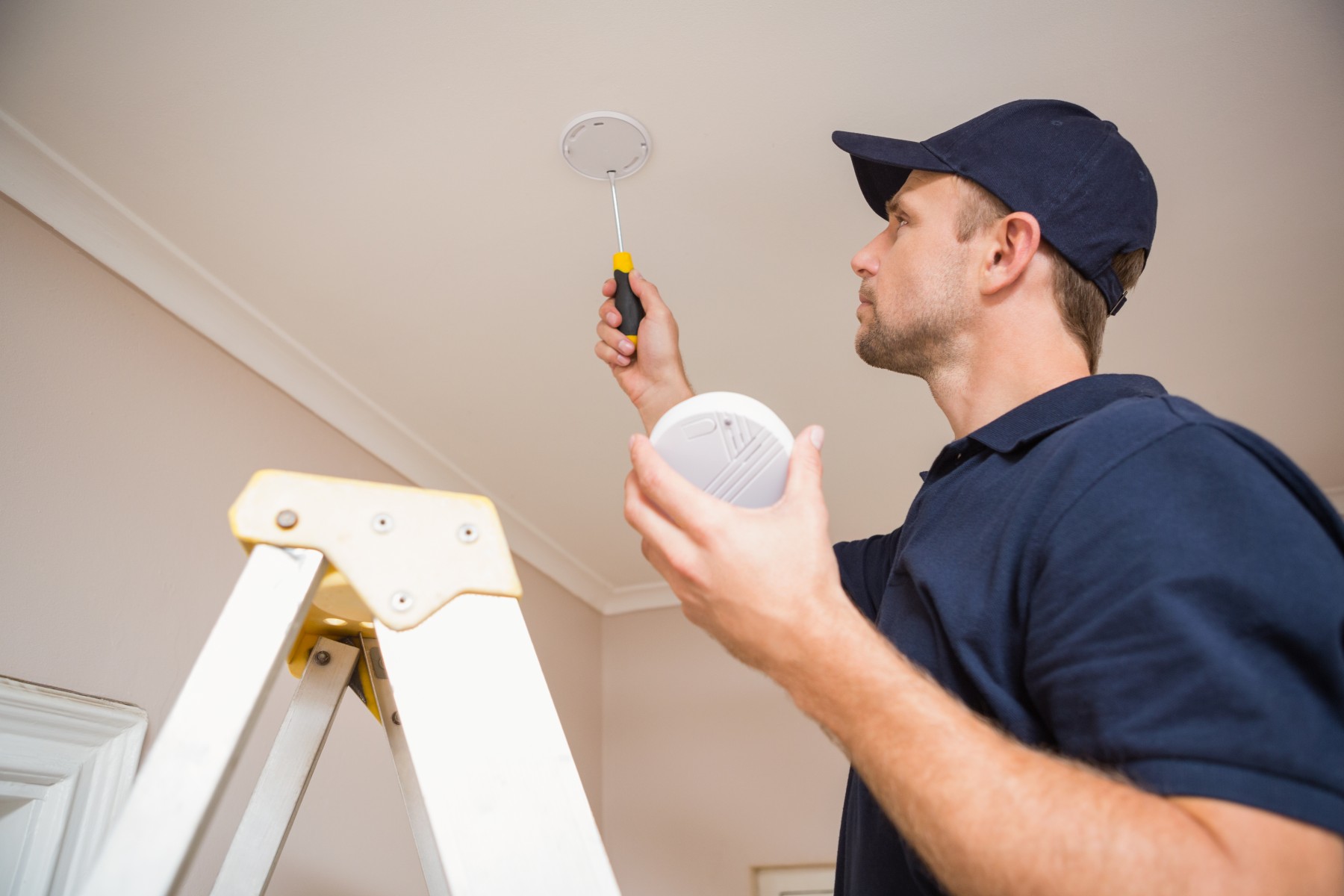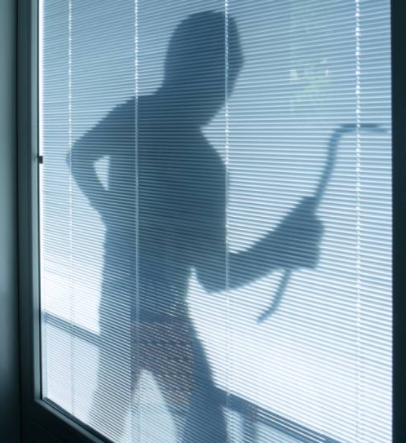 Secure Sliding Doors and Windows
Secure Sliding Doors and WindowsBy simply popping them out of their frame, even when closed, you can easily break through some older sliding doors. For newer ones, it's harder to do so, but you should always take extra care to protect them because they can be an enticing entrance for burglars. Simply take and slide it into the back groove with a solid dowel, steel bar or two-by-four. That way, the rod prevents the door from moving back and opening, even though people may choose the bolt.
Don't Showboat
It can unwittingly draw thieves to your property like frantic bargain hunters to a flea market by leaving some stuff lying around your yard or in plain sight from the road. Next, roll it inside or into your garage if you have a bike or scooter that anyone might possibly walk away with. Also, do not leave the package outside the garbage can or recycling bin after buying a new plasma screen television or other expensive electronics or appliances. That tells people that you have something different, brand spanking that can get decent dollars on the street. They might also be left wondering what other goodies are inside your house.
Secure Your Yard
Tall shrubs and overgrown trees are welcome hiding places for offenders to wait to get into your house until the coast is clear. That doesn't mean every plant in your yard needs to be cut down. Simply keep things manicured.
If they try to break in through one, low shrubs in front of windows reduce additional covering for criminals. Cut off any tall tree branches that enter the windows of the upper story and shield them from attack from above. Trimming bigger bushes and tree branches on a regular basis often removes dark shadows that help conceal intruders.
Prepare Before Vacation
During July and August, residential crime spikes as individuals head off on summer vacations. If you are going out of town for an extended period of time, contact your local police to let them know, as mentioned earlier. Also, warn neighbors who you trust about your trip and suggest that during that time they keep an eye on your house.
More importantly, don't leave signs of an empty house when you leave town. That's just going to make your house look like a giant bull-eye to a robber. First of all, if you have a home phone, don't change your message to warn callers that you're leaving the area. You also stop piling up mail, overgrown lawns and newspapers strewn across your yard that take you miles away with surefire signals.
Know Your Neighbors
Studies have repeatedly found that monitoring systems successfully minimize community crime and violence. The National Sheriff's Association supervises the organization of the national watch group and provides a variety of services to create and join one.
You have more incentives to get to know your neighborhood if you rent a house or apartment, so tenants are 85 percent more likely to experience a break-in. This could be because tenants are not as likely or have any form of neighborhood watch program to watch out for each other.
Lock it Up
As stated earlier, without the use of force, more than 40 percent of break-ins happen. That means that, without locking the doors and windows, many people leave their homes. If your doors are secured with a thumb latch and a deadbolt, lock the dead bolt at all times. Double-check weaker doors to ensure that their locks are sturdy enough to withstand kicks, such as patio and sliding ones. Do not forget to lock the door that leads from the garage to the inside as you leave your house. And if your garage door is down, it can be opened easily by anyone.

